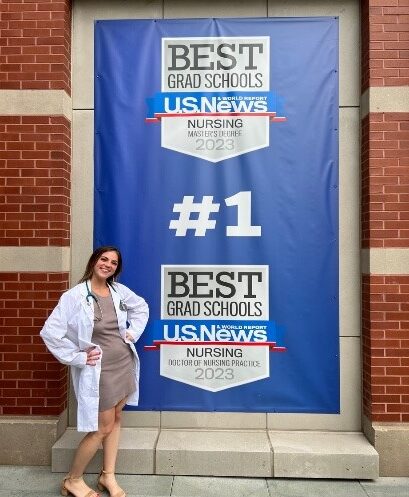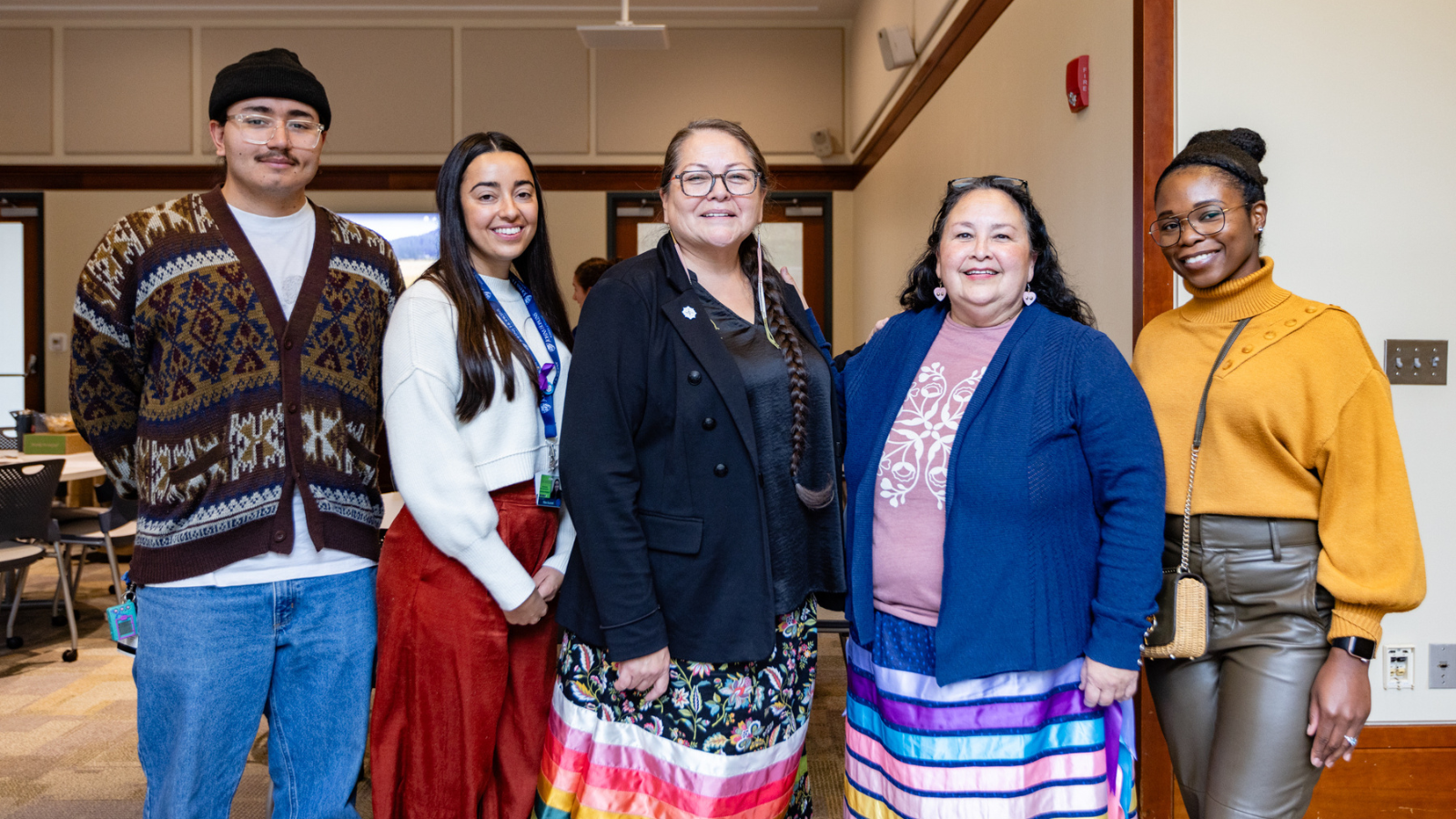Jillene Joseph, Executive Director of the Native Wellness Institute, facilitated a two-part comprehensive training, “How to be an Ally to Indigenous People in Academia,” which outlined critical steps students, staff and academics can take to be stronger allies in the realm of academics, and decolonize the systems among us.
How to Understand Allyship
What does it mean to be an ally? Everyone holds different understandings of the role allyship plays in our world and learning space. People view allyship as being a friend, taking action, supporting marginalized communities, uplifting voices, and “participation in trailblazing change.” While listening to one another in this space, we create a shared meaning of allyship. Allyship is also determined by the Indigenous peoples we stand with.
How to Use the Power of Storytelling and Listening
Stories and experiences of tribal community and how inherently colonized systems have impacted these communities, and so many other Indigenous peoples, play a vital role in allyship. Adverse health outcomes, such as alcohol and substance addiction, in Native communities formed from the introduction and forced consumption from colonists who believed this would subdue Native American men and diminish their cultural practices. There is now so much work within Native communities and health research to address addiction, find treatment, and work to correct these historical traumas.
The power of storytelling also highlights the importance of cultural practices and traditions. As a non-Indigenous ally, it is crucial to listen intently to the many ways colonization has impacted our Indigenous peers and community members.
View all photos from the training
Understanding Colonization and Responsibility
Colonization is strongly present in every space with which we engage, academia being one of the most notable. Where else do we see discrimination, racism, and bias bleed into our systems? The consequences of colonized systems within healthcare include fostering racism and continued adverse health outcomes, as well as silencing Indigenous voices. There is also a prominent neglect to include Indigenous health practice and healing within medicine, which nursing academics play a crucial role in creating more inclusive spaces for. Non-Indigenous allies are responsible for deconstructing colonized practices and systems which have for too long normalized discrimination.
What Happens When a Colonized Ally Meets a Decolonized Ally
Lynn Gehl, an Algonquin Anishinaabe-kwe from the Ottawa River Valley and an Indigenous advocate and writer, created a powerful learning tool that breaks down how learning from a colonized ally and voice means stepping back, standing behind, de-tokenizing, respecting truths, promoting knowledge, and truly listening. Non-Indigenous allies’ needs come second, or the greater oppressive power structures upheld within academia cannot be appropriately dismantled.
The Power of Vibrations
As a closing exercise, Joseph brought everyone together in a big circle to join hands. Joseph explained how the energy within a room is palpable, so much so that it directs the vibrations and rubs off on others. Positivity guides Joseph’s work as a leader, advocate, and Indigenous ally. All non-Indigenous allies must continue in carrying the beautiful vibration of positivity and courage.
View all photos from the training
Join the Johns Hopkins School of Nursing for a book club on the second Tuesday of each month. Starting Tuesday, November 14th, this space will be offered both virtually and in person.
Read More:
- The Young Medicine Movement: The Importance of Mentorship, Culture, and Career Development for Native Health Scholars
- Celebrating Native Land on Indigenous Peoples Day
- Roots of Inequity: Native American Health
About the Author: Rayut Berkowitz
Rayut Berkowitz is a fourth semester MSN student at Johns Hopkins School of Nursing and a graduate of the University of Michigan with a Bachelors in Gender and Health and Middle East history. Rayut aspires to work as a labor and delivery nurse to continue her passions of reproductive health and justice, public health, and mental health care and hopes to become a DNP nurse midwife. Rayut works with Dr. Teresa Brockie and her team collaborating with research devoted to working with Native American youth and communities.




 Birth Companions Talk Doulas and Maternal Health with Mayor Brandon Scott
Birth Companions Talk Doulas and Maternal Health with Mayor Brandon Scott Earth Day: An Opportunity to Address the Environmental Injustice of Plastic Pollution
Earth Day: An Opportunity to Address the Environmental Injustice of Plastic Pollution Forging Policy: How Can Doulas Improve Black Maternal Health?
Forging Policy: How Can Doulas Improve Black Maternal Health? No. 1 Rankings for the School of Nursing and a Pipeline to the “Best Jobs”
No. 1 Rankings for the School of Nursing and a Pipeline to the “Best Jobs” Global Service Learning: Guatemala
Global Service Learning: Guatemala



